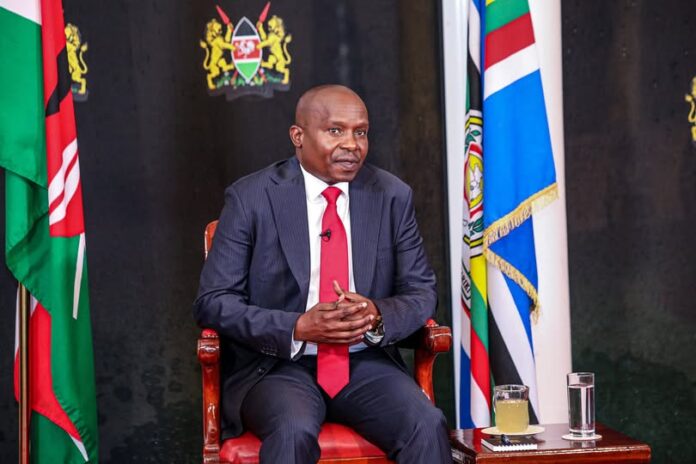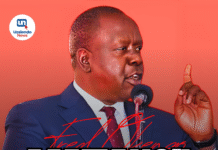Deputy President Kithure Kindiki has declined to take responsibility for the deaths of 60 people during the anti-Finance Bill 2024 protests earlier in the year.
Speaking during a joint interview on Thursday, December 19, Kindiki who was then the Interior Cabinet Secretary, dismissed calls for accountability, stating that his role as the minister was limited to providing policy guidance.
“I have no reason to take responsibility for anything because the space of violence and encounter with law enforcement is a space that is defined by the law and the role of the Minister of Interior is defined in the Constitution in article 245 on what that role is and that role includes providing policy guidance to the organs of internal security,” he said.
Kindiki emphasized the independence of the Inspector General of Police, who is constitutionally mandated to oversee police operations.
He noted that the actions of law enforcement during the protests were under the independent command of the IG.
“The role of police operations is protected through the mandate of independent command of the Inspector General of Police and therefore police operations especially in engaging protestors or people who are seen as breaching the peace is the province for the independent command of the Inspector General of the NPS,” he added.
Kindiki, who served as the country’s Interior Minister for two years, further explained that his role was to ensure the security of the country and protect it from any threats.
“Every day, I woke up to do my work, which was to ensure that the country’s security programmes were effective and to safeguard our nation from threats. Security forces are charged with ensuring this, and their work does not require my guidance,” he added.
When questioned about his responsibility for police misconduct, Kindiki, a professor of law, stated that police officers are allowed to use force, including lethal force, under exceptional circumstances.
“I advise police officers to use force only within the strict parameters of the law. Should any officer exceed these boundaries, they are held accountable under the law,” he said.
He, however, noted that police actions, even in the context of protests or the fight against organised crime, must always comply with constitutional guidelines.
“Any police officer who uses excessive force is held accountable. This is not the responsibility of the Interior Minister but falls under the wider scope of the law,” Kindiki said.
The Deputy President also noted that the government had supported the families of victims in such circumstances, though this assistance is not always budgeted for.
“I am aware that the government has provided modest support to the families affected by such incidents. This support is given on a case-by-case basis and remains confidential. When distress occurs, we go out of our way to assist, but this support is not always budgeted for,” he said.
Kindiki further addressed the complexity of compensation issues for victims, suggesting that legal frameworks for such cases, including those involving terrorist-related deaths, are still under development.
“The question of compensation is complex and requires careful guidance. The Ministry was working on the operationalisation of Section 49 of the Prevention of Terrorism Act to address such situations,” he said.



















